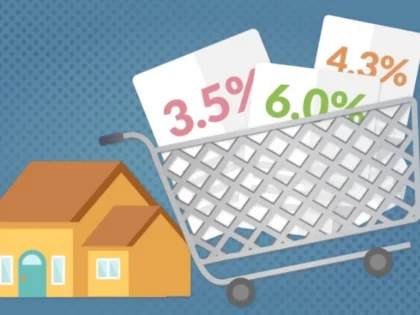How Insurance Companies Determine Your Premiums
In essence, premiums are a sum of money that insurance companies set aside in order to reimburse policyholders for claims they may submit. This makes it possible for insurers to properly operate and balance their losses. Numerous elements, such as the kind of coverage, deductibles, and plan category, affect premium costs. That being said, there are five factors that you can manage that could impact your insurance rates:
Evaluation of Risk

History of Claims
 Every year, thousands of insurance clients put money in a pool. This pool covers the small number of claimants who come forward in a given year. In order to lower their financial risk, insurance companies invest the remaining premiums.
The type of claim you submit may also affect your rate. For instance, submitting a claim for wind or flood damage on your house insurance may result in a premium increase.
Actuaries are employed by insurance firms to determine the probability of a claim and adjust policy prices accordingly. Your risk assessment will be greater and your rates will be higher, the more claims you have on file.
Every year, thousands of insurance clients put money in a pool. This pool covers the small number of claimants who come forward in a given year. In order to lower their financial risk, insurance companies invest the remaining premiums.
The type of claim you submit may also affect your rate. For instance, submitting a claim for wind or flood damage on your house insurance may result in a premium increase.
Actuaries are employed by insurance firms to determine the probability of a claim and adjust policy prices accordingly. Your risk assessment will be greater and your rates will be higher, the more claims you have on file.
Age
 The possibility that you may need to use your coverage is one of the many factors that insurance companies evaluate to determine your premiums. Age, locality, plan type, and tobacco usage are a few of these. Certain metrics, like your age or the state and county in which you reside, are unchangeable; however, there are others that you can reduce by bundling different types of coverage or by participating in incentive programmes that recognise and reward positive behaviours, like finishing an annual health assessment or giving up smoking. All of these strategies can lower your premium and help you maintain financial stability. Ultimately, comparing quotes and making sure you have the appropriate level of coverage are the best ways to reduce the cost of your insurance.
The possibility that you may need to use your coverage is one of the many factors that insurance companies evaluate to determine your premiums. Age, locality, plan type, and tobacco usage are a few of these. Certain metrics, like your age or the state and county in which you reside, are unchangeable; however, there are others that you can reduce by bundling different types of coverage or by participating in incentive programmes that recognise and reward positive behaviours, like finishing an annual health assessment or giving up smoking. All of these strategies can lower your premium and help you maintain financial stability. Ultimately, comparing quotes and making sure you have the appropriate level of coverage are the best ways to reduce the cost of your insurance.
Driving History
 A spotless driving record is one of the most important things that insurance companies consider when determining premiums. For example, the cost of auto insurance may increase dramatically for a driver with a history of moving offenses compared to a driver without accidents.
When setting an individual's auto insurance quote, the majority of insurers also take their credit score into account. States, however, have different laws governing insurance scoring. While some states severely regulate how insurance firms may compute a credit-based insurance score, others outright forbid insurers from using credit scores.
A spotless driving record is one of the most important things that insurance companies consider when determining premiums. For example, the cost of auto insurance may increase dramatically for a driver with a history of moving offenses compared to a driver without accidents.
When setting an individual's auto insurance quote, the majority of insurers also take their credit score into account. States, however, have different laws governing insurance scoring. While some states severely regulate how insurance firms may compute a credit-based insurance score, others outright forbid insurers from using credit scores.
Type of Vehicle
 Your insurance rate will depend on the kind of car you drive. Insurance companies take into account the potential damage a given car could cause to another vehicle in an accident, the potential cost of repairs, and the vehicle's safety features.
Age is another significant factor in determining premiums. Because older drivers have statistically fewer accidents than younger drivers, their auto insurance costs are typically lower.
In order to assist them in paying claims, insurance companies combine the funds of thousands of policyholders. It is imperative that they maintain a substantial liquid asset balance sheet to ensure prompt payment of claims.
Your insurance rate will depend on the kind of car you drive. Insurance companies take into account the potential damage a given car could cause to another vehicle in an accident, the potential cost of repairs, and the vehicle's safety features.
Age is another significant factor in determining premiums. Because older drivers have statistically fewer accidents than younger drivers, their auto insurance costs are typically lower.
In order to assist them in paying claims, insurance companies combine the funds of thousands of policyholders. It is imperative that they maintain a substantial liquid asset balance sheet to ensure prompt payment of claims.
Whereabouts
 Insurance premiums are payments made to an insurer in exchange for the coverage they provide. They assist in making sure the business has adequate liquid assets to cover claims and running costs.
A number of criteria, such as your age, location, and line of work, might affect the cost of a premium. For instance, properties in disaster-prone areas or those that would cost more to replace usually have higher premiums from home insurance providers. Additionally, whether your employer provides a health stipend or a health reimbursement arrangement (HRA) as part of your group plan may impact the cost of your healthcare premiums. This is because group plans spread risk across multiple groups of people.
Insurance premiums are payments made to an insurer in exchange for the coverage they provide. They assist in making sure the business has adequate liquid assets to cover claims and running costs.
A number of criteria, such as your age, location, and line of work, might affect the cost of a premium. For instance, properties in disaster-prone areas or those that would cost more to replace usually have higher premiums from home insurance providers. Additionally, whether your employer provides a health stipend or a health reimbursement arrangement (HRA) as part of your group plan may impact the cost of your healthcare premiums. This is because group plans spread risk across multiple groups of people.






